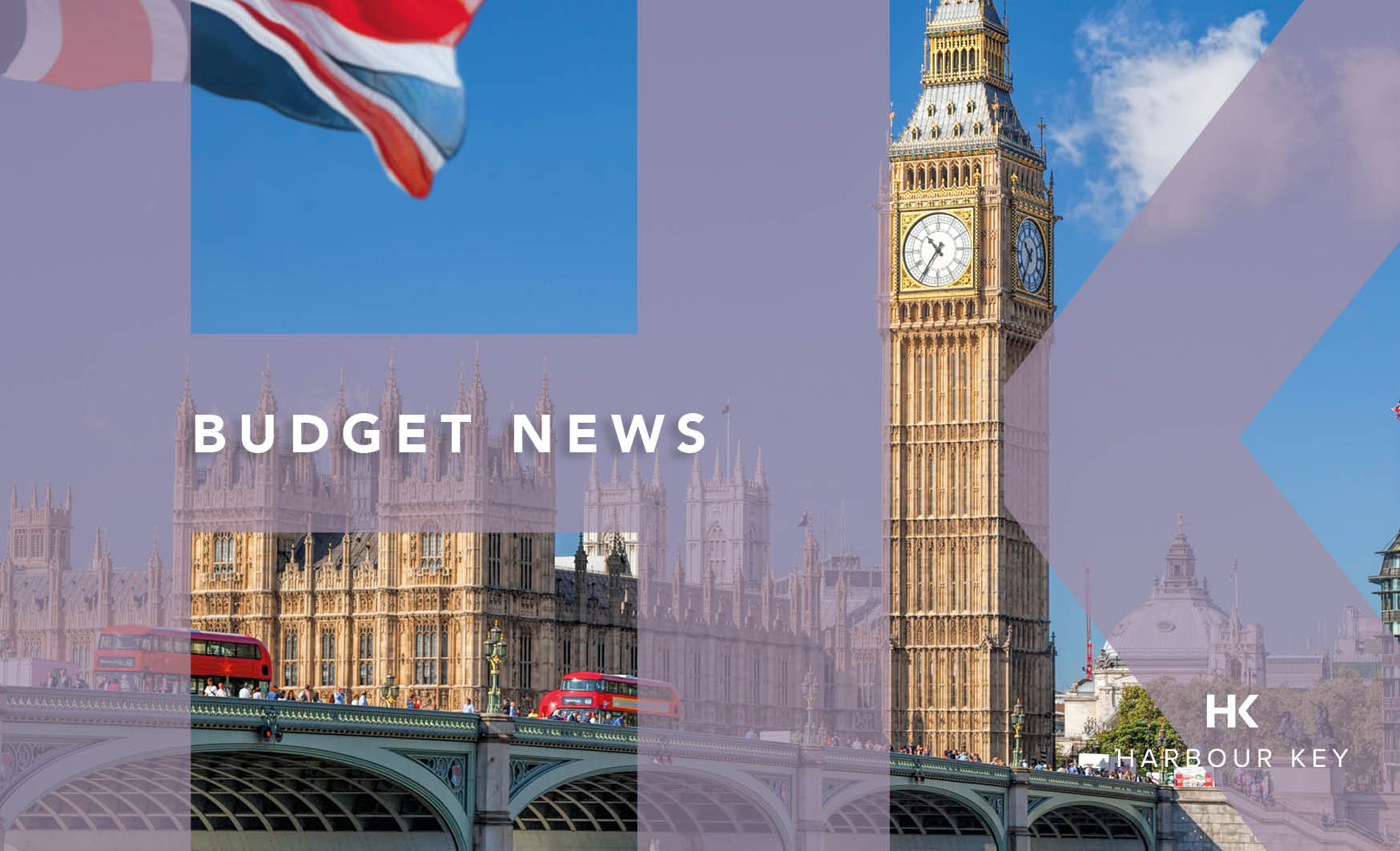Personal Tax
Income Tax
- The income tax personal allowance will increase to £11,850 (currently £11,500) from 5th April 2018.
- The basic rate income tax threshold will be increased to £34,500 (currently £33,500) from 5th April 2018.
A combination of the above means that higher rate income tax, 40%, is not paid until income is above £46,350.a
The additional rate band of 45% on income above £150,000 remains in place.
There is no change to personal income tax rates.
(The above does not apply to Scotland, as the Scottish Parliament have their own powers to deal with income tax).
Capital gains tax – annual exempt amount
The capital gains annual exempt amount (amount of a chargeable gain before paying capital gains tax) increases to £11,700 for individuals and £5,850 for trusts from 5th April 2018.
There are no changes to the rates of capital gains tax, 10% for basic rate taxpayer and 20% thereafter, unless residential property is involved where the corresponding rates are 18% for a basic rate tax-payer and 28% thereafter.
Pension Lifetime allowance
The pension lifetime allowance (limit on the amount of pension fund assets that can held for the benefit of any one individual) increases in line with the Consumer Prices Index, rising to £1,030,000 from April 2018.
Landlords
From April 2018 landlords will have the choice to use fixed rates for business mileage to calculate their allowable deductions for motoring expenses (45p for the first 10,000 miles and 25p thereafter), instead of deducting the actual running costs and claiming capital allowances. This basis of claiming is not available to landlords who are companies or in mixed partnerships. This makes the tax computations of unincorporated rental businesses more consistent with trading businesses who already have this choice.
Employment
Company Cars
Increasing the diesel supplement
The diesel supplement will increase from 3% to 4%. The diesel supplement is used to calculate company car tax and car fuel benefit charge, where the employer provides the employee with a diesel car that is made available for private use. This has the effect of increasing the level of the taxable benefit for diesel cars.
The increase only applies to cars, not vans so as not to impact small businesses.
Employer-provided electricity for an electric car
From April 2018 employer-provided electricity for employees to charge their vehicles will no longer be taxed as an employee benefit in kind. This will apply to electricity provided in workplace charging points for electric or hybrid cars owned by employees.
Overseas scale rates for accommodation & subsistence
The existing concessionary travel and subsistence overseas scale rates will be placed on a statutory basis on and after 6 April 2019, to provide clarity and certainty for employers. Employers will only be asked to ensure that employees are undertaking qualifying travel.
In addition, receipts checking for subsistence benchmark scale rates both UK and overseas will be abolished at the same time. These measures will reduce the administrative burden for employers where the scale benchmark rates are applied.
Abolition of receipts checking does not apply to amounts agreed under bespoke scale rates agreements or industry specific rates.
Off-payroll working reform – extension to the private sector
The government will consult in 2018 on how to tackle non-compliance with the intermediaries’ legislation (commonly known as IR35) in the private sector. The legislation ensures individuals who effectively work as employees are taxed as employees, even if they choose to structure their work through a company.
Measures were introduced in April 2017 to the public sector and these are expected to now be rolled out to the private sector next year or in 2019.
Tax treatment of termination payments – foreign service relief
Employees who are UK resident in the tax year their employment is terminated will not be eligible for foreign service relief on their termination payments from April 2018.
Disguised remuneration
It has already been announced that measures would be introduced in April 2018 to tackle existing, and prevent future use of, disguised remuneration avoidance schemes. However, these measures will be slightly enhanced. The legislation covered by this measure will build on what has already been enacted to, in particular, tackle the existing use of disguised remuneration schemes with the new charges on disguised remuneration loans outstanding on 5 April 2019 (the ‘loan charge’). The changes introduce a requirement for employees and self-employed individuals to provide information to HMRC by 1 October 2019 about their disguised remuneration loans to ensure the loan charge is complied with. In the main this is to tackle businesses which have historically used employee benefit trusts with employee loan scheme arrangements.
Corporate
Research and Development (R&D)
Increase in the rate of the R&D expenditure credit from 11% to 12%, in order to support business investment in R&D from 1 January 2018.
Corporate Capital Gains indexation allowance
Indexation allowance (which eliminates the effects of inflation when calculating the chargeable gains of companies) is to be frozen on corporate capital gains for disposals on and after 1 January 2018.
The relief was abolished for individuals in April 1998, so the move belatedly brings corporates in line with individuals.
Disincorporation relief
At Budget 2013, the Government introduced a disincorporation relief for 5 years from April 2013. The relief is not to be extended beyond the current 31 March 2018 expiry date.
Corporate venture schemes (SEIS, EIS & VCT) – As expected changes were made to the various corporate venture schemes, which have been dealt with separately Click here for our link.
VAT
Registration (£85,000) and deregistration (£83,000) thresholds remain unchanged.
The other main VAT measure centred around tackling avoidance and evasion, making organisations in the online supply chain responsible for the non-compliance of suppliers. Some sellers avoid UK VAT by selling to UK buyers via on-line market places. Measures will be introduced in 2018 to ensure that on-line market places who allow UK and overseas e-traders to sell in the UK without accounting for VAT will be held jointly and severally liable for the unpaid tax. On-line market places will also be responsible for displaying sellers’ VAT numbers where provided and ensuring the numbers displayed are valid.
Duties
- Vehicle excise duty – a supplement for new diesel cars registered on and after 1 April 2018 will be introduced, so that the First Year Rate of VED for a new diesel car will go up by one band. The change will apply to all new diesel cars that do not meet the current emissions standards.
- Air Passenger Duty – The Air Passenger Duty for long-haul standard rate will increase and the long-haul higher rate to £515 on and after 1 April 2019. Short haul rates, and the long haul reduced rate for economy passengers will be frozen at the tax year 2018 to 2019 levels. Increase rates will also apply to privately owned aircraft.
- Tobacco Duty rates – increase the duty rates for all tobacco products by 2% above Retail Price Index inflation from 6pm on 22 November 2017. Tobacco duty rates will increase by a minimum of 2% above inflation until the end of this Parliament.
- Alcohol duty rates – All frozen, other than a new cider duty band for still cider of a strength of at least 6.9% but not exceeding 7.5% alcohol by volume, to encourage the production and consumption of lower-strength ciders.
- Fuel Duty – Frozen
Stamp Duty Land Tax
Stamp Duty Land Tax relief for first-time buyers
A new relief from Stamp Duty Land Tax (SDLT) that will permanently raise the price at which a property becomes liable for SDLT to £300,000 for first-time buyers. Those claiming the relief will pay no SDLT on the first £300,000 of the consideration and 5% on any remainder.
No relief will be available where the total consideration is more than £500,000 and the relief is only available to first-time buyers, which is strictly defined.
The relief will apply to transactions with an effective date on or after 22 November 2017.
SDLT Higher Rates
Measures will be introduced to improve the operation of the higher rates of SDLT by granting relief from duty in certain cases where:
- a Court order issued on a divorce or dissolution of a civil partnership prevents someone from disposing of their interest in a main residence
- a spouse buys property from their spouse
- a person buys a property in a child’s name or on a child’s behalf, where they are doing so in their capacity as the deputy of that child
- a purchaser adds to their interest in their main residence
SDLT – changes to the filing and payment process
A reduction in the SDLT filing and payment window from 30 days to 14 days will be introduced from 1 March 2019.
Consultations
A number of consultations were announced, which we have summarised below, as they provide an insight to what could be introduced in the future:
- Taxing non-residents’ gains on immovable property – Looking at widening the UK’s tax base to include disposals of UK commercial property by non-residents, both directly and indirectly, and will bring all companies into charge on disposals of residential property and all persons into charge on indirect disposals of residential property. At the moment, only residential property disposed of by a non-UK resident is subject to UK tax.
- Review of the Intangible Fixed Asset regime to consider how the current regime encourages growth and whether there are targeted changes that can be made in response to this.
- Profit fragmentation – best way to prevent UK traders or professionals from avoiding UK tax by arranging for UK trading income to be transferred to unrelated entities (arising from the Paradise Papers). This will include arrangements where profits accumulate offshore and are not returned to the UK.
- Royalties Withholding Tax – Looking at measures to charge income tax on large multi-national companies who shift profits offshore to low tax jurisdictions.
- Taxation of trusts – a consultation in 2018 on how to make the taxation of trusts simpler, fairer and more transparent.
- Consultation on extending the scope for employees and the self-employed to claim tax relief on self-funded training.
- Employment status consultation – Publish the consultation as part of its response to Matthew Taylor’s review of modern working practices, considering options for reform to make the employment status tests for both employment rights and tax clearer.
- Capital gains tax: Entrepreneurs’ relief – relief after dilution of holdings by looking at how access to the relief might be given to entrepreneurs whose holding in their company is reduced below the normal 5% qualifying level as a result of raising funds for commercial purposes via the issue of new shares.
- Taxation of single-use plastics waste, to help to reduce the amount currently being produced which causes long term pollution issues.
Please do not hesitate to contact us if you wish to discuss anything covered in the newsletter or any tax, accounting or business related matter.
To find out more about Harbour Key, or any of the issues above, contact us by email or telephone on 01452 713277






